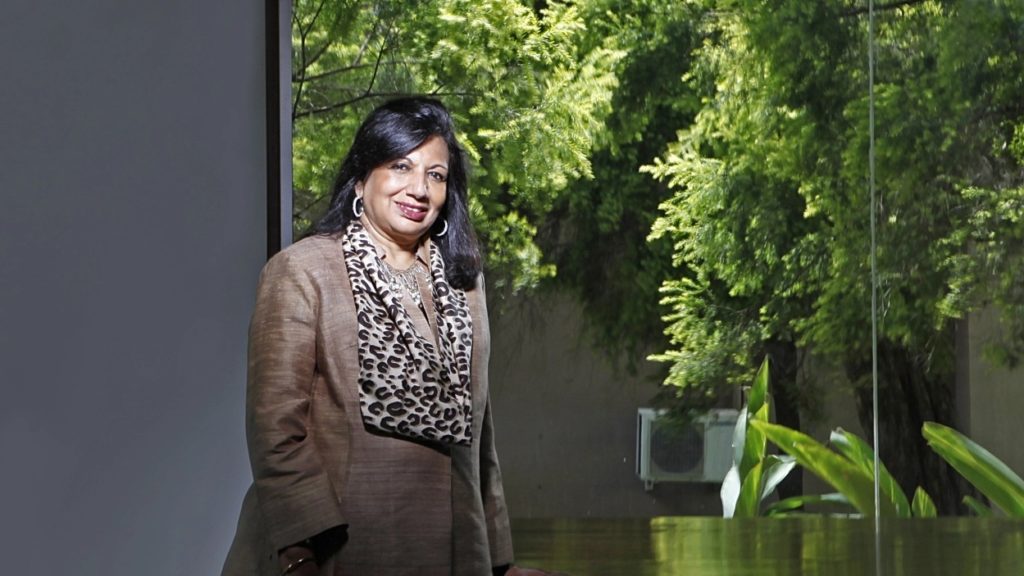Biocon’s biologics portfolio comes into its own

Five years ago, Biocon’s biologics business largely consisted of insulin clones and was worth about ₹400 crore. At the time, Biocon was valued at just under $1 billion.
Announcing its second-quarter results, MD and chairperson Kiran Mazumdar-Shaw said that the biologics business grew about 40% during the period to touch a revenue of ₹516 crore, compared to the year ago quarter. The company also reiterated its long-term plans for Biocon Biologics, a newly formed entity that will exclusively house the biologics business, to be a $1 billion business by 2022. Last year, the business was worth about $200 million.
however, Biocon’s stock fell 5%, as analysts felt costs had increased leading to lower profitability growth. Biocon increased its R&D outlay and employee benefits as the company hired new talent to run its newly formed biologics unit. Biocon’s R&D cost increased 36% to ₹104 crore for expansion of its portfolio, while its employee benefit expenses grew 22%, the company said.
The results during the quarter looked tepid as profits were strictly not comparable with that of the same period last year. The company reported a net profit of ₹215.7 crore for the quarter ended September 30, 2019 compared to ₹354.7 crore for the corresponding period last year. However, last year’s profit included a one-time gain of ₹171 crore as the company fair valued its investment in the U.S.-based Equillium, as per its filing on the BSE. Excluding the impact of the one-time gain last year, the profit would have been higher by 3% at ₹189 crore, Biocon said in its release.
The consolidated total income of the company grew at 17% to ₹1,610.6 crore for the quarter under consideration as against ₹1,375.4 crore. Thanks to the increase in costs, its operating margins were down 200 basis points to 27%. “A disproportionate percentage of the company’s capital employed goes into biologics. So any increase in costs related to that business looks like a negative until results are shown. So, in the short term the stock looks rather expensive,” says an analyst, who did not wish to be named.
A company executive, on condition of anonymity, said the results are not being seen in perspective of the unique business the company operates in. Unlike most other domestic pharmaceutical companies, Biocon’s revenues from biologic drugs are as much as its small molecule (chemical generics) business. Now, biologics are hard to make and have longer investment cycles, but are the preferred drugs of treatment in several chronic illnesses especially cancer.
Biocon’s Mazumdar-Shaw began investing in biologics in the late 90s, when it was just another buzz word. As Biocon did not have too many products to show, its valuation did not go past $1 billion for a long time. Thanks to a consistent show in biologics in the last five years, Biocon’s valuation is over $4 billion and the new focus on the segment will only augur well for its growth. Biocon is now the seventh most-valuable company in the segment among 165 listed firms.
Revenue from biologics was fuelled by sales of Fulphila (a biosimilar of anti-cancer drug Pegfilgrastim) in the U.S.; Hulio (a biosimilar of Adalimumab) in Europe; and a biosimilar of breast cancer drug Trastuzumab in several emerging markets such as Brazil, Turkey, and Algeria. Sales of recombinant human insulin also remained strong, the company said. Biocon Biologics has now set itself a revenue target of $1 billion by 2021-22 (April-March), Christiane Hamacher, chief executive officer, Biocon Biologics, said in a company release.
Source : fortuneindia